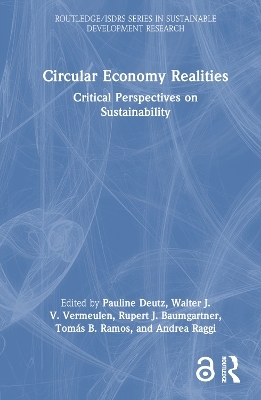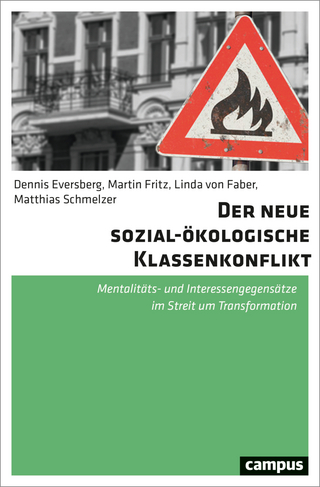
Circular Economy Realities
Routledge (Verlag)
978-1-032-28184-1 (ISBN)
This book addresses the realities of the circular economy, a resource efficiency concept that has risen to global prominence in academic, policy and business circles over the last decade. Considered an approach to sustainable growth, the volume critically analyses how sustainable emerging applications of a circular economy are in practice.
The book stems from an international, interdisciplinary project exploring the discourses, policies, implementation and impacts of the circular economy across public, private and third sector accounts. It draws on a wide range of case studies, from the UK, Portugal, Austria, Italy, the Netherlands, France, Chile, China, Nigeria, Taiwan and Vietnam, highlighting how experiences both shaped and were shaped by the places in which they were happening. It provides a guide to researching a complex phenomenon such as a circular economy, which involves both collaboration and competition between multiple stakeholders across different sectors and places. Synthesising the multiple perspectives employed in the project, the book makes recommendations for circular economy implementation in different contexts, including the assessment of sustainability implications, whilst indicating the limited potential for circular economy activity to bring social and economic benefits without explicit motivation for those to happen.
Benefitting from extensive empirical research, this critical assessment of sustainability in the context of the circular economy will appeal to a broad readership of academics, upper-level students, practitioners and policy-makers in sustainable development, business, economics, geography, sociology and environmental engineering.
The Open Access version of this book, available at http://www.taylorfrancis.com, has been made available under a Creative Commons Attribution-Non Commercial-No Derivatives (CC-BY-NC-ND) 4.0 license.
Pauline Deutz is Professor of Circular Economy and Sustainability in the School of Environmental Sciences at the University of Hull, UK. Walter J.V. Vermeulen is Associate Professor in the Copernicus Institute of Sustainable Development at Utrecht University, the Netherlands. Rupert J. Baumgartner is Professor of Sustainability Management in the Department of Environmental Systems Sciences at the University of Graz, Austria. Tomás B. Ramos is Professor of Sustainability Assessment and Planning in the Department of Environmental Sciences and Engineering at the NOVA School of Science and Technology, NOVA University Lisbon, Portugal Andrea Raggi is Full Professor of Industrial Ecology and related issues in the Department of Economic Studies at 'G. d'Annunzio' University of Chieti–Pescara, Italy.
1. Introduction: Exploring the sustainability implications of a circular economy 2. Approaches to circular economy research 3. Navigating diverse understandings of a circular economy 4. Exploring the role of companies in transitioning to a sustainable and circular future: Insights and reflections 5. Assessment approaches and methods for a circular economy 6. Socio-spatial dimensions of a circular economy 7. Emerging indications of employment in a circular economy: A synthesis of European case studies 8. Policy recommendations for a circular economy 9. Conclusions: Emerging understandings of circular economy realities
| Erscheinungsdatum | 22.08.2024 |
|---|---|
| Reihe/Serie | Routledge/ISDRS Series in Sustainable Development Research |
| Zusatzinfo | 1 Tables, color; 6 Tables, black and white; 15 Line drawings, color; 4 Line drawings, black and white; 5 Halftones, black and white; 20 Illustrations, color; 4 Illustrations, black and white |
| Verlagsort | London |
| Sprache | englisch |
| Maße | 156 x 234 mm |
| Gewicht | 610 g |
| Themenwelt | Sozialwissenschaften ► Soziologie ► Spezielle Soziologien |
| Wirtschaft ► Allgemeines / Lexika | |
| Wirtschaft ► Volkswirtschaftslehre | |
| ISBN-10 | 1-032-28184-7 / 1032281847 |
| ISBN-13 | 978-1-032-28184-1 / 9781032281841 |
| Zustand | Neuware |
| Informationen gemäß Produktsicherheitsverordnung (GPSR) | |
| Haben Sie eine Frage zum Produkt? |
aus dem Bereich


